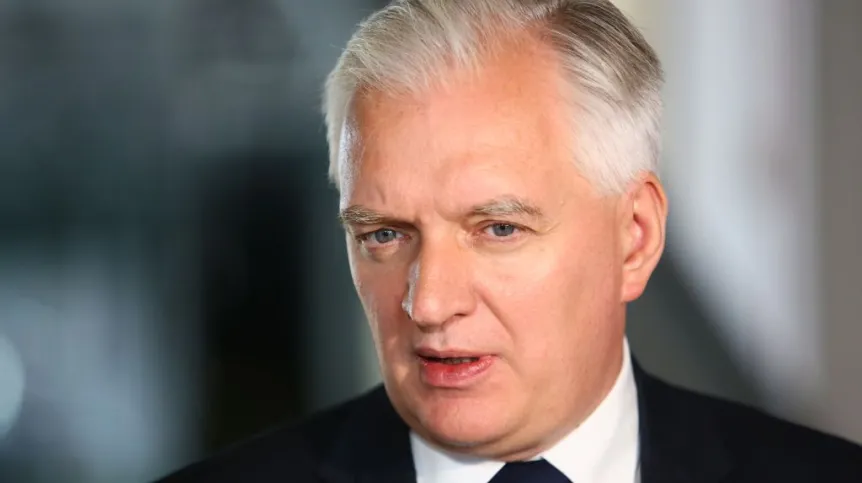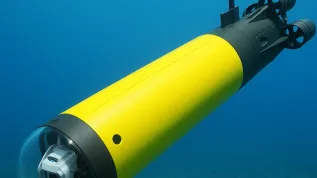
The creation of the National Agency of Academic Cooperation, selecting research universities, support for universities of the third age and sending science buses to Polish schools - these are the planned changes in science and education, which Minister of Science Jarosław Gowin announced in an interview with PAP.
"Poland is now 24th in the world in terms of GDP, while investments in research and development put us in 37th place. This means that financing for science is lower than the Polish financial capacity would indicate. In terms of level of science, Poland is about 20th in the world. The situation is much worse in the case of higher education: as we all know, the best Polish universities dropped to the fifth hundred in the Shanghai rankings. Taking into account the whole higher education system, we are in the fourth ten in the world. The conclusions are as follows: we have to subsidize science and reform universities" - Minister of Science and Higher Education Jarosław Gowin said in an interview with PAP.
Ministry of Science has prepared a strategy for changes in science and higher education, which - according to the Minister of Science - is based on three pillars. "We have called the first pillar a new constitution for science. It is based on the new Higher Education Law, in which, among other things, I would like to suggest the selection of a new type of universities: research universities. They would not focus on mass education, but on elite education, and put emphasis on research conducted by the academic staff" - said the Minister of Science.
There could be a number of such research universities, and - Gowin noted - Ministry of Science does not intend to name them. "We do not want to decide that it will be the University of Warsaw or the Jagiellonian University. We want to come up with clear criteria that an university with the status of research university would have to meet, and then show the road map and benefits associated with obtaining such status" - said Deputy Prime Minister.
Three teams selected in a competition are already working on the assumptions of the new Law on Higher Education. They are preparing three competing concepts of assumptions, which should be completed in February 2017. Assumptions for the new law - according to the plans of the Ministry of Science - will be announced in September 2017, during the National Congress of Science. It will be preceded by a series of conferences and debates under the auspices of the science ministry. The first conferences is to be held on 20-21 October in Rzeszów and its theme will be the internationalisation of science and higher education. Subsequent meetings will be held in various academic centres in Poland.
During the Rzeszów conference in October, also presented will be the concept of a new institution, the National Agency of Academic Cooperation, counterpart of the German DAAD (German Academic Exchange Service). "This agency, in manner planned and consistent with the strategic objectives of the state, will conduct the scholarship policy: funding foreign trips of Polish scientists, funding scholarships for foreign students, graduate students, postdocs. I hope also that this institution will help bring back many great, promising young scientists who have emigrated from Poland and work in universities around the world" - said the head of the science ministry.
The second pillar of changes planned by the Ministry of Science concerns the partnership of science and business. "We need to change Poland to enter the phase of innovative economy. From the very beginning, our government took the view that this innovativeness should be achieved by basing the Polish economy on the achievements of Polish scientists" - said Jarosław Gowin.
In mid-August the Council of Ministers adopted the assumptions of the so-called a small law on innovation. Minister of Science reminded that, under the new law businesses will benefit from the higher tax relief, deductions of the cost of research and development will be raised to the level of 50 percent. Businesses will have more time to deduct these costs. Today they have to do it within three years, after the changes it will be six years. "From the point of view of the scientists themselves, we lift the time limit for obtaining profits from commercialisation, but we also require universities to allocate a specific part of the budget grants to commercialisation of research, i.e. to technology transfer centres" - noted the Minister of Science.
National Centre for Research and Development will also undergo changes. "We simplify the procedures, change the rules for the selection of experts, to eliminate the cases of so-called cross reviewing that have occurred in the past. But above all, the National Centre for Research and Development will fund those areas of science that are complementary to the areas of the economy selected by the Prime Minister Morawiecki, as the areas with the greatest growth potential" - Minister of Science told PAP.
Ministry of Science also plans to reform research institutes and establish single National Institute of Technology on their base. "Here, too, we draw from proven foreign concepts: the Finnish model. The idea is to connect the various research institutes in centres of excellence, a type of network in which they will not compete, but work with each other" - announced Minister Gowin.
The third pillar of the reform will concern so-called social responsibility of science. "Schools and universities can not be ivory towers. They should be more open to the daily needs of the citizens, put more emphasis on popularising science, and at the same time justify to the Poles, why we should increase spending on science and higher education" - stressed the minister.
One element of this social responsibility is the University of the Young Explorers - recently announcement by the Ministry of Science grant program for universities for children. In 2017, the Ministry of Science together with the Copernicus Science Centre also wants to send science buses to 400 Polish schools. "They will be equipped with mobile science labs. In these laboratories, specially trained animators will conduct activities popularising science" - said the Minister of Science.
Support will also be offered to universities of the third age. "This phenomenon is equally interesting as universities for the children, but so far outside the interest of the ministry of science. Wrongly so" - noted the head of the science. Pilot support program for universities of the third age is to be launched in 2017. In the first edition, they may receive support in the amount of 4 million zlotys. After the pilot edition is completed, the amount is to be increased.
PAP - Science and Scholarship in Poland, Ewelina Krajczyńska
ekr/ zan/ mrt/
tr. RL













